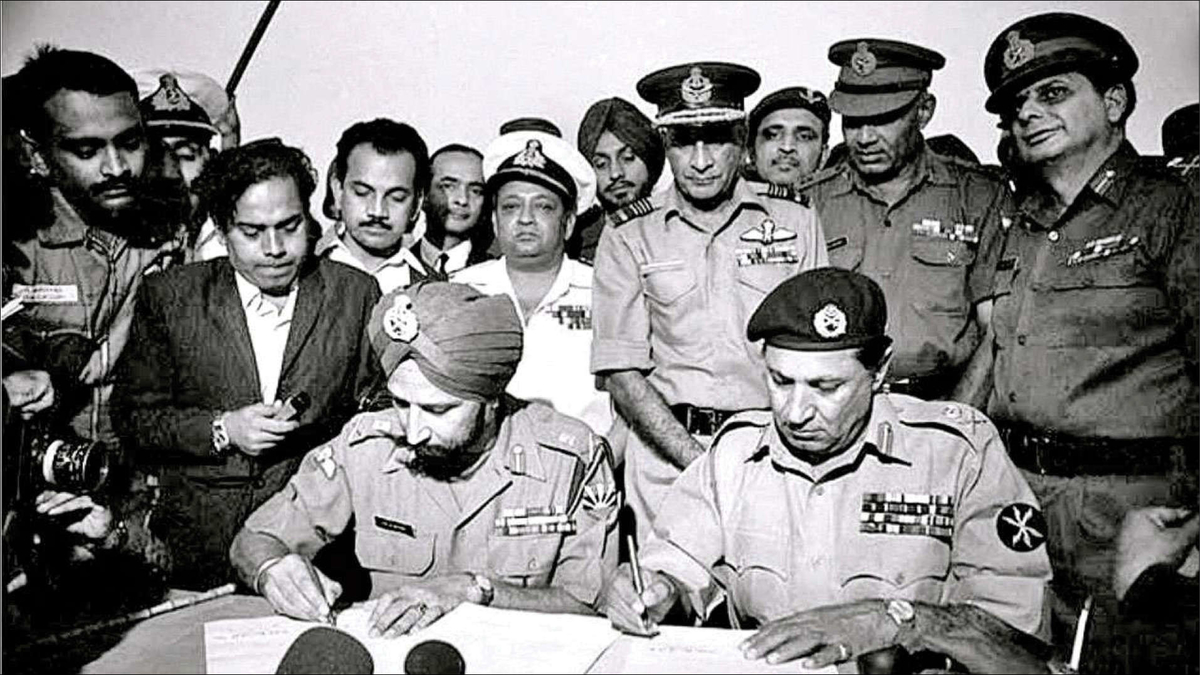Many believed that another Nuremberg trial would commence once Bangladesh accused 195 Pakistan military officers of war crimes and other related crimes.
Pakistan’s chief justice, fearing for the officers, filed a petition, “Trial of Pakistani Prisoners of War” (Pakistan versus India) on 11 May 1973, seeking the intervention of the International Court of Justice (ICJ), in the Hague, Netherlands.
Pakistan instituted proceedings against India concerning the 195 PoWs; according to Pakistan, India proposed to hand over to Bangladesh, who was suspected of acts of genocide and war crimes.
Pakistan’s application was filed in ICJ, instituting proceedings against India in respect of a “dispute concerning charges of genocide against 195 Pakistani nationals, prisoners of war, or civilian internees in Indian custody.” India stated that there was no legal basis for the court’s jurisdiction in the matter and that Pakistan’s application was without legal effect. Pakistan hurriedly informed the court that negotiations had taken place, and requested to discontinue the application in July 1973. Accordingly, the case was removed from the list in December 1973.
5. On 2 July 1972, eight months after the PoWs issue, Pakistan’s President Zulfikar Ali Bhutto and Indian Prime Minister Indira Gandhi signed the historic Simla Agreement. The crucial negotiation was held following the brutal birth of Bangladesh in 1971 and nearly 93,000 Pakistani forces and civilians were taken as PoWs. The deal enabled India to agree to release all the PoWs.
Earlier Sheikh Mujib’s requests in March 1972 and for their safety and well-being, the POWs were transported to India. India treated the war prisoners in accordance with the Geneva Convention, 1925, but used this issue as a tool to coerce Pakistan into recognising the sovereignty of Bangladesh after three countries reached a compromise in 1974.
Bangladesh was processing formalities to bring charges against the 195 prisoners for war crimes in their special courts established in Dhaka. To punish the 195 war criminals, Bangladesh enacted the International Crimes (Tribunals) Act (ICT Act 1973), to authorise the investigation and prosecution of the persons responsible for genocide, crimes against humanity, war crimes, and other crimes under international law committed in 1971.
Once Mujib announced that Bangladesh would put the war crimes suspects on the docks, the military hawks in Rawalpindi interned almost all the Bangla-speaking officers and soldiers in the army, navy, air force, border guards, police, and civil bureaucrats as POWs.
Bhutto also announced that several officers and civil bureaucrats would be tried for sedition and other crimes according to the Pakistan Army Act of 1952. This news alarmed Mujib who immediately sought help from friendly countries to exert diplomatic pressure on Pakistan.
Thus, both Bangladesh and India succumbed to the political blackmail of Pakistan. The three countries signed a historic “Bangladesh-India-Pakistan: Agreement of Prisoners of War and Civilian Internees” on April 9, 1974. Dr Kamal Hossain, then Foreign Minister of Bangladesh, stated in the agreement: “The excesses and manifold crimes committed by those prisoners of war constituted, according to the relevant provisions of the UN General Assembly resolutions and international law, war crimes, crimes against humanity, and genocide, and that there was universal consensus that the persons charged with such crimes as the 195 Pakistani prisoners of war should be held to account and subjected to the due process of law.”
The negotiators of the Tripartite Agreement failed to have included a guarantee clause of the military trial of the war crimes suspects. Therefore, the 195 returned safely to Pakistan without being produced in any tribunal in Bangladesh nor were they charged under the Pakistan Military Act.
Saleem Samad is an independent journalist and columnist, a media rights defender in Bangladesh. He is a recipient of the prestigious Ashoka Fellowship (1991) and Hellman-Hammett Award (2005). Besides writing on contemporary Bangladesh issues, he regularly writes on forced migration, secularism, Islamic Jihad, ethnicity, and narratives of the liberation war.

